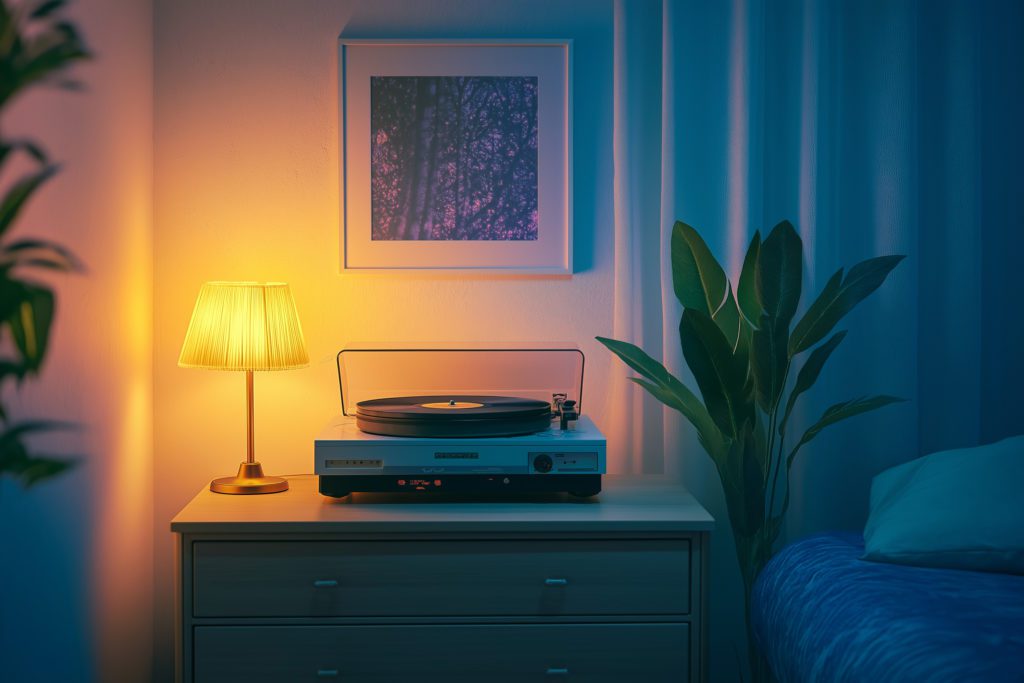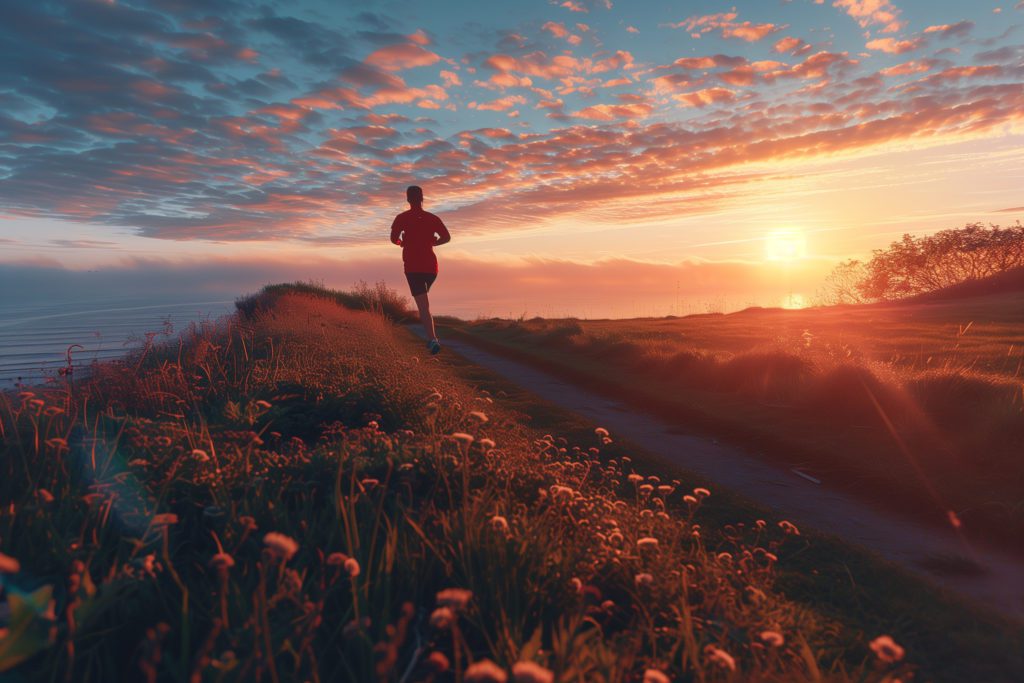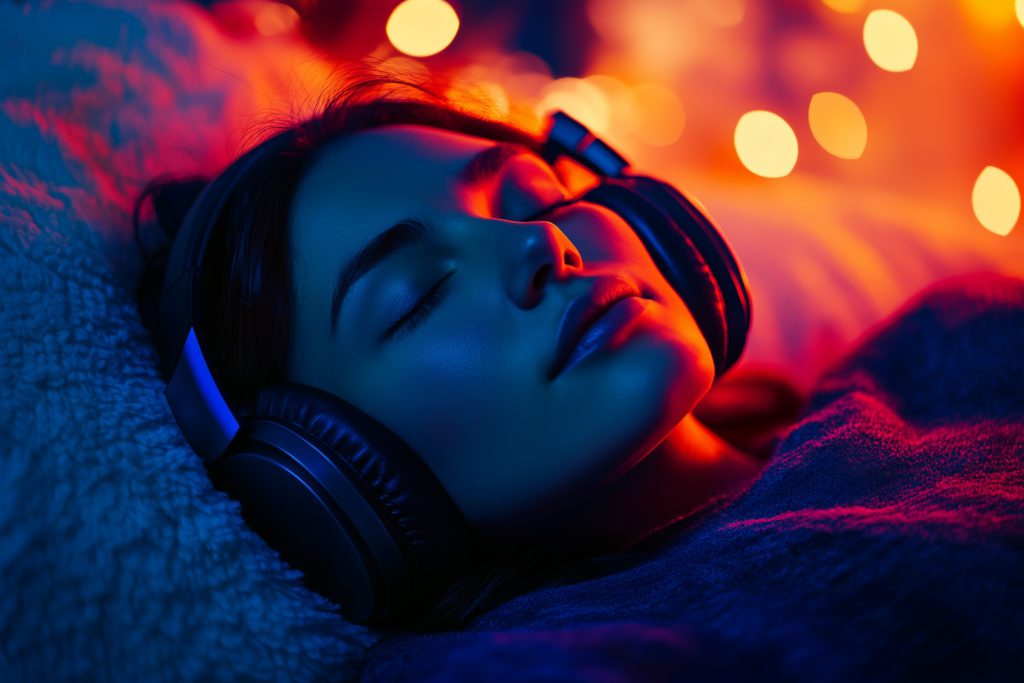
Personalized ASMR: Tailoring Your Experience for Optimal Sleep
Discover how to personalize your ASMR experience for better sleep. Learn the science behind ASMR, explore triggers, and create your ideal rest routine.

Have you ever noticed how you sleep like a log after a long day spent outdoors? Well, it's not just the fresh air or the fact that you've been hauling a backpack up a mountain. Nature has a magical effect on our sleep. The beauty of spending time in nature, especially during backpacking trips, is that it helps us unwind, disconnect from the chaos of daily life, and, most importantly, sleep better.
In today's world, many of us are glued to our screens late into the night, and it wreaks havoc on our sleep. But during a backpacking trip, those distractions are left behind, and nature works its magic on our tired bodies.
In this article, we're going to explore the effect of nature on sleep, especially when you're out there under the stars with nothing but the sounds of rustling leaves.
Natural Light and Circadian Rhythms
If there's one thing that can make a difference in how well you sleep, it's light. Or, more accurately, the absence of artificial light. When you're out backpacking, far away from city lights, your body can finally start to synchronize with nature's clock. This natural rhythm is called the circadian rhythm, and it's the body's internal timekeeper that regulates sleep and wakefulness.
In the wild, the only light you're exposed to is the sun during the day and the stars or moon at night. Without artificial lighting, like the glow from your smartphone or the buzz of streetlights, your body knows when it's time to wind down.
In fact, a study published in the Journal of Biological Rhythms found that people who spent time without access to artificial light experienced an earlier sleep onset and more restful sleep.
The effect of nature on sleep becomes even more apparent when we compare it to the disruptive patterns caused by our modern lighting environment, where we constantly face blue light from screens.
The Calming Effect of Natural Sounds
Just imagine you're tucked into your sleeping bag after a long day of hiking, and instead of the honking cars, blaring sirens, or the neighbor's dog barking incessantly, all you hear are crickets chirping and a gentle breeze rustling through the trees. Sounds relaxing, right?
Well, it turns out that the sounds of nature don't just create a peaceful ambiance—they actually have a calming effect on the brain, helping you sleep better.
Research suggests that natural sounds, like flowing water, birdsong, or wind through leaves, can lower heart rates and reduce stress.
A 2018 study published in Medicine journal revealed that listening to natural sounds promotes relaxation and recovery.
When you're out in nature during a backpacking trip, you're getting a front-row seat to the most soothing soundscape around. These sounds are predictable and rhythmic, unlike the erratic noise of urban environments, which can spike anxiety and disrupt sleep.
But what if you don't have the energy to go on a backpacking trip? After all, you cannot be on a trip for 365 days of a year. Don't worry. Pillow offers ASMR sounds, including soothing themes like gentle tapping and rustling, to help create a calming environment and improve sleep quality within the comfort of your home.
Physical Exhaustion and Sleep Quality
If there's one surefire way to knock yourself out at night, it's a day filled with physical activity. Backpacking, with its rugged terrain and long hours of trekking, is a workout like no other. The physical exhaustion that comes with a day of hiking plays a key role in improving the quality of your sleep.
When you exercise, your body requires rest to repair and recover. Research has shown that physical activity leads to deeper, more restorative sleep. This is because exercise helps increase the time your body spends in slow-wave sleep, which is the most rejuvenating sleep stage. Backpackers often find that after a full day of trekking, they fall asleep faster and stay asleep longer.
The effect of nature on sleep isn't just mental. It's deeply physical. Being active in natural settings, where you're exposed to fresh air, sunlight, and challenging terrain, helps your body achieve the kind of fatigue that makes sleep feel like a sweet reward at the end of the day.
The Challenges of Sleeping in Nature
Of course, it's not all sunshine and starry nights when it comes to sleeping outdoors. There are a few challenges that can come with sleeping in nature.
For instance, varying temperatures can leave you either shivering in your tent or sweating in your sleeping bag. And while the sounds of nature are usually soothing, the occasional rustle in the bushes might have you imagining a bear outside your tent.
Another common challenge is finding a comfortable sleeping setup. The ground isn't exactly the most forgiving mattress and an ill-placed rock can make for a rough night. That's why having the right gear—like a quality sleeping pad and a warm, weather-appropriate sleeping bag—is crucial for a good night's sleep.
Despite these challenges, the effect of nature on sleep still outweighs the inconveniences for most people. With a little preparation and the right mindset, you can turn these minor discomforts into part of the adventure.
The Bottom Line
Whether it's the natural light resetting your internal clock, the soothing sounds of a forest, or the physical exhaustion from a day on the trails, the effect of nature on sleep is undeniable.
Backpacking trips offer a unique opportunity to reconnect with nature, leaving behind the artificial distractions that can disrupt our sleep in the modern world.
Sure, there might be the odd challenge here and there—like a cold night or a curious critter—but that's all part of the adventure.
So, if you're craving better sleep and a break from your usual routine, maybe it's time to grab that backpack and head into the wild.

Written by
Marie Soukup
Marie Soukup is a seasoned copywriter, editor, and Integrative Nutrition Health Coach with a certificate from the Institute of Integrative Nutrition (IIN). With years of experience working with brands across diverse industries, Marie is passionate about holistic health and crafting compelling content.
Download Pillow
Get help
Press & News
Legal
Connect
X (Twitter)
Company
Copyright © Neybox Digital Ltd.



